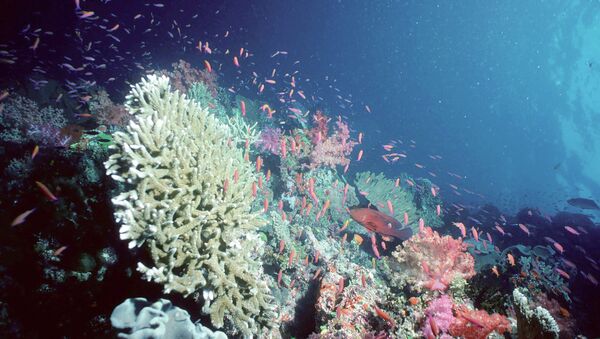Bleaching is a process when coral's symbiont algae, crucial for the survival of the animals, dies. According to the ministry's Ishigaki Ranger Office in Okinawa, an inflow of red soil into the ocean as well as seawater contamination can cause bleaching but, according to research, the primary reason is global warming. Ocean temperatures in 2016 were about two degrees higher than normal, and this was enough for the algae to start dying. Scientist also point out that any sudden change of temperature, light and nutrients can contribute to bleaching.
Coral reefs with dead algae lose their magnificent colors and turn white, hence the name of the disease. If exposed to bleaching for a prolonged time, corals die of malnutrition, and reefs become covered with a dark brown algae.
The process is not limited only to reefs in Okinawa. A meteorological phenomenon known as El Niño, resulting from sea-water temperature fluctuations, has contributed greatly to coral bleaching around the world. Extinction of corals endangers numerous species that rely on the reefs for food and shelter, eventually affecting the entire food chain, scientists warn.






